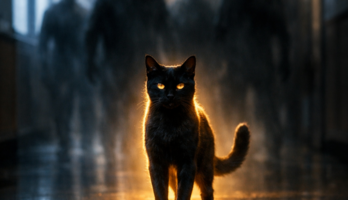[учебник] English Grammar Reference and Practice. Drozdova (1175660), страница 70
Текст из файла (страница 70)
4. The babyis three months old. It is a ..........................................5. The parcel weighs two kilos. It’s ............................................... 6. The jar contains three litres. It’s.............................................. 7 . 1live not far from theUniversity. It takes me 10 minutes to walk there. It is............................................... 8. The fence is twentymiles. It’s .............................................
9. The road isseventy kilometres. It’s ..............................................(B) Write the negative adjective forms.(M o d e l:) The coast line is not regular in shape. It isquite irregular.1. This arrangement isn’t strictly legal. Some peoplewould regard it a s .......................2. It is not possible.Don’t ask me to do t h e ........................ 3. Such asituation is barely imaginable. It’s q u ite ......................249A J @ keHow far is your house from the station?Only a ten-m inute walk if you run.-I» tr-.-'THEADJECTIVE2. W o rd O rder: A d je c tiv e + N o u nSometimes we use two or more adjectives together:□ There was a beautiful large round wooden table in the kitchen.Adjectives like new/large/round/wooden are fact adjectives. They give us objective information about age,size, colour, etc.
Adjectives like nice/beautiful are opinion adjectives. They tell us what someone thinks ofsomething.Opinion Adjectives Go before Fact Adjectives^NounOpinionFactnicedeliciousan intelligentbeautifulsunnyhotyounglarge round wooden^daysoupmantable...... 1 - УWe Put Fact Adjectives in this Order:blueblackyoung-a tallbiga smalla large--oldan old-FrenchRussian--——plastic-maneyesbagarmchairsong1.Materials (nouns) behave like adjectives when we use them to form compound nouns:□ a shirt (noun) made of cotton (noun) ■=> a cotton shirt.2.We can have three-word compound nouns.
“ Material” comes before “purpose” or “use” :□ a clock made of plastic used in the kitchen ■=> a plastic kitchen clock.Adjectives ao before nouns.We cannot separate a compound noun by an adjective:□ a good plastic kitchen clock.SUMMARY:rsizeageshapecolourbeautiful/ large^valuableoldroundbrownquality/opinionwhere from?илиPast ParticiplePast Participleилиwhere from?French/handmadehandmade/French250material purpose\nounkitchentablewooden)WORDORDER:ADJECTIVEEXERCISESNOUN(В, C) You are looking for items you want tobuy. Begin each sentence with “I ’m looking for...”.(A, B) Put the adjectives in brackets in thecorrect position.- an attractive modern house1.+(M o d e lp o lis h e d - beautiful - wardrobe - oak antique - French.I ’m looking for a beautiful antique polishedFrench oak wardrobe.1.sports car - well-maintained - second-hand with a low mileage2.leather - Italian - a pair of - shoes - black which I can use for worka young girl (pretty) -2.a handsome man (young) -3.a kitchen cupboard (oak) -3.cottage - stone-built - small - old - country4.brown bag (leather) -4.cotton - shorts - summer - white - for myholiday5.an American film (old) -6.big eyes (blue) -4(В, C) Translate into English.7.a hot bath (nice) -1.новая белая хлопчатобумажная рубашка -8.a new dress (cotton) -2.маленькая черная металлическая коробка -9.a red car (old/little) -3.уродливое зелёное платье -10.
a gold watch (small/antique) -4.красивые светлые длинные волосы -11. a little village (old/lovely) -5.12. an old mansion (stone/English) -6.интересное старое французское полотно(картина) - ........................................................;необычные золотые серьги ручной работы -7.zo(A, B) Make two-word and three-word nouns.8.незабываемое двухдневное путешествие налодке - ..............................................................
;дорогой старый круглый дубовый стул ручнойработы -(^Model:^) a dress made of silk - a silk dress.1. railings made of iron - ........................................ ;2. a clock used in the kitchen - ............................... ;A J © ke3. a ta b le m ad e o f p la s tic /u s e d in th e kitc h e n -.............................................. ; 4. trousers made ofcotton - .......................................; 5. a sweater madeof wool/worn in winter - .......................................... ;6. a box made of steel - ............................................251Y o ur U ncle Ted is c o m in g to m o rro w .W h e re ’s the expensive new Spanishguitar he gave you for your birthday?I threw it out.But why? It must have cost him afortune!It had a hole in it!THEADJECTIVEUse of Adjectives after VerbsAfter be/look/feel/seem /sm ell/taste/sound we use adjectives:□ Do you feel tired?□ The dinner smells good.□ Tom sounded angry.□ Your friend seems nice.After other verbs we use adverbs (badly/well/carefully) (see “Adverbs” ):□ Drive carefully.□ Susan plays tennis well.□ John behaved badly last night.NB!(look{= seem) + adjective(at) + adverb□□/О(A, B) Write down adjectives or adverbs inthe following sentences.1.2.3.4.6The child’s skin fe e ls......
..................... (smooth/smoothly)Everything w e n t............ ................... (sm ooth/smoothly)You c o o k ........................ .......(good/well)Your cooking is .............. ................ (good/well)The water sm ells............ ................ (bad/badly)The film e n d e d ..............
................ (bad/badly)She lo o k e d ............................... (nice/nicely)He answ ered.................. .............(nice/nicely)(B) Translate the words in brackets.1. What beautiful flowers! They (хорошо пахнут).................................. too. 2. Jack read his new storyto me. It (звучало интересно)..................................I hope the editor will like it. 3 .
1can’t eat it. It (ужаснона вкус) ................................. and too much salt.4 . 1wasn’t very well yesterday but today I (чувствуюсебя прекрасно)...................................5. Have youbeen out in the rain? You (выглядишь промокшим)................................6. Ann (казалась расстроенной)................................. yesterday.
Do you know whathad happened?Tom looked sad when I saw him.Tom looked at me sadly.(B) Translate the sentences.1.Он зло посмотрел на меня, когда я прервал(interrupt) его.......................................................2.Пожалуйста, закрывай дверь тихо, ребёнокспит.......................................................................3.Ты можешь быть хоть минутку спокойным?Я так устала.
Посиди спокойно. - ....................4.Том прекрасно себя ведёт и хорошо готовит5.Мне это не нравится, всё это дело выглядитне безопасным (safe). - ....................................6.Все волнения были позади. Он прибыл живыми здоровым. - ...................................................7.Поторопись! Ты такой медлительный. -8.Суп вкусный (прекрасный на вкус).
-9.Веди машину осторожно. Кажется, дорогаочень скользкая (slippery). - .............................25210. Она была печальна; она печально смотрелана меня. - ............................................................THECOMPARISONOFADJECTIVES3. The C o m p a ris o n o f A d je c tiv e sCommon Com parative and Superlative Forms:We use the comparative when comparing one person or thing with another.We use the superlative when comparing one person or thing with more than one.(ADJECTIVESOne-syllable and sometwo-syllable words endingin -y, -e r, -ow , -leTwo or more syllablewordsIrregular formsCOMPARATIVESUPERLATIVEhotlargenarrowsimple... + -e rhotterlargernarrowersimplerth e ... + -e s tthe hottestthe largestthe narrowestthe simplestbeautifulinterestingm o re /le s s + ...more beautifulmore interestingth e m o s t/le a s t + ...the most beautifulthe most interestingbetterworseolderelderfartherfurtherthe bestthe worstthe oldestthe eldestthe farthestthe furthestgoodbadoldfarv^^Spelling Rules1.Adjectives like hot (big, fat, sad, wet) double the consonant:hot - h o tte r - the hottest.2.Adjectives like nice (fine, large, late, safe) add -r, -s t :nice - n icer - the nicest.3.With adjectives like busy we use -/ in place of -y:busy - busier - the busiest.NOTE:Some two-syllable adjectives like happy (clever, common, narrow, pleasant, quiet, simple, stupid) have twocomparative or superlative form s:- either with -e r/-e s t.□ She’s cleverer than you.
She’s the cleverest person I know.- or with m o re /th e m ost:□ She’s more clever than you. She’s the most clever person I know.253THEADJECTIVECom parative and Superlative Forms Often Confused:O lder/E lder1.Further and farther refer to distance:□ London is five miles fu rth e r/fa rth e r.F u rthe r (not “ farther") can mean “ inaddition”:□ There is no fu rth e r information.4.Latest/last:□I bought the latest (i.e. most recent) editionof today’s paper.□I bought the last (i.e.
final) edition of today’spaper.5. The comparative and superlative of little issmaller/smallest:□ a s m a ll/little boy, a s m a lle r/th e sm allestboy.2. We use elder/eldest before a noun only withreference to people in a fam ily:□ my e ld e r b ro th e r/s o n , th e e ld e s t ch ild ,he’s th e e ld e s t (but not “ He is elder thanme.” )We use older/oldest for people and things:□He is o ld e r than I am. This book is o ld er.6. “In the near future” means «в ближайшембудущем».3.















